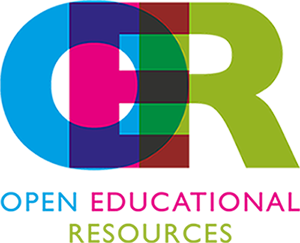The Making of an Open and Transparent Adaptive Information Literacy Module
Presenter Biography
Dawn Lowe-Wincentsen is an Open Education enthusiast and librarian in Oregon.
Start Date
5-14-2021 9:00 AM
Description
Transparent course and assignment design gives students a framework with which to understand why the information is important and how it fits into the greater scheme of education and career. Open educational resources (OER) and open pedagogies use alternative copyright to make materials accessible and adaptable. This case study will describe merging these two principles to create an adaptable course module on information literacy. The module was built in six parts. Each part is designed after a pillar of information literacy as discussed in The Information Literacy User’s Guide, and OER. Each pillar has an informational page and assignments at different levels. These may be used as a whole, in parts, or adapted to what best suits the course need. If using the items as a whole, assignments can be scaffolded to build up to a single project. Assignments are each written using transparent design principals in order to make them equitably accessible across student populations.
Related videos:
History of the project:
https://oit.instructuremedia.com/embed/2cd87fa4-1a63-4a6f-95ec-751951552268
TILT framework:
https://oit.instructuremedia.com/embed/6ddb01d9-9594-42bc-926a-c3295321bde2
OER and Transparent:
https://oit.instructuremedia.com/embed/5cf3af45-516b-4d97-a6cb-1807616c81aa
LIS 305 the module in practice:
https://oit.instructuremedia.com/embed/c100de8c-e6a2-4f57-a9df-1d7370e17be6
IL Module walk through:
https://oit.instructuremedia.com/embed/41d2c973-b6f8-49f5-b377-dba65b80f480
Birds of a Feather Session 2: May 14, 1-2
Room 3: Open Pedagogy Course Design
Zoom Link: https://lanecc.zoom.us/j/99950317791
Persistent Identifier
https://archives.pdx.edu/ds/psu/35367
The Making of an Open and Transparent Adaptive Information Literacy Module
Transparent course and assignment design gives students a framework with which to understand why the information is important and how it fits into the greater scheme of education and career. Open educational resources (OER) and open pedagogies use alternative copyright to make materials accessible and adaptable. This case study will describe merging these two principles to create an adaptable course module on information literacy. The module was built in six parts. Each part is designed after a pillar of information literacy as discussed in The Information Literacy User’s Guide, and OER. Each pillar has an informational page and assignments at different levels. These may be used as a whole, in parts, or adapted to what best suits the course need. If using the items as a whole, assignments can be scaffolded to build up to a single project. Assignments are each written using transparent design principals in order to make them equitably accessible across student populations.
Related videos:
History of the project:
https://oit.instructuremedia.com/embed/2cd87fa4-1a63-4a6f-95ec-751951552268
TILT framework:
https://oit.instructuremedia.com/embed/6ddb01d9-9594-42bc-926a-c3295321bde2
OER and Transparent:
https://oit.instructuremedia.com/embed/5cf3af45-516b-4d97-a6cb-1807616c81aa
LIS 305 the module in practice:
https://oit.instructuremedia.com/embed/c100de8c-e6a2-4f57-a9df-1d7370e17be6
IL Module walk through:
https://oit.instructuremedia.com/embed/41d2c973-b6f8-49f5-b377-dba65b80f480
Birds of a Feather Session 2: May 14, 1-2
Room 3: Open Pedagogy Course Design
Zoom Link: https://lanecc.zoom.us/j/99950317791


